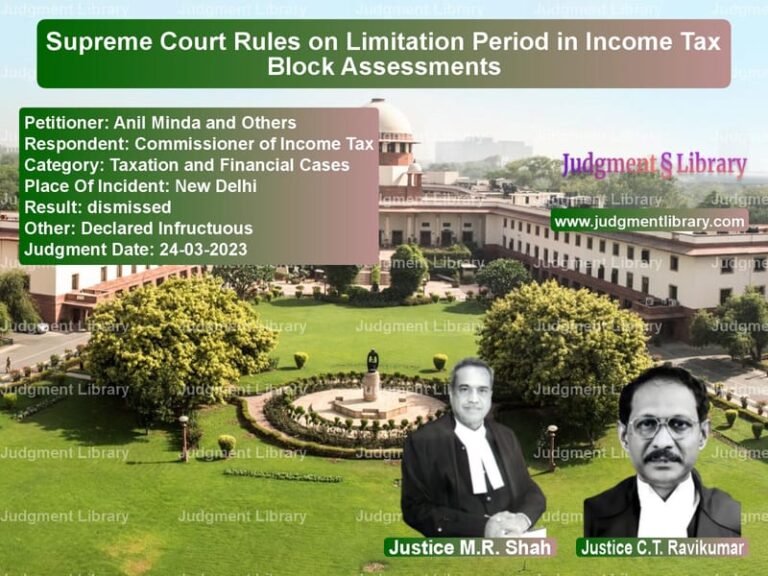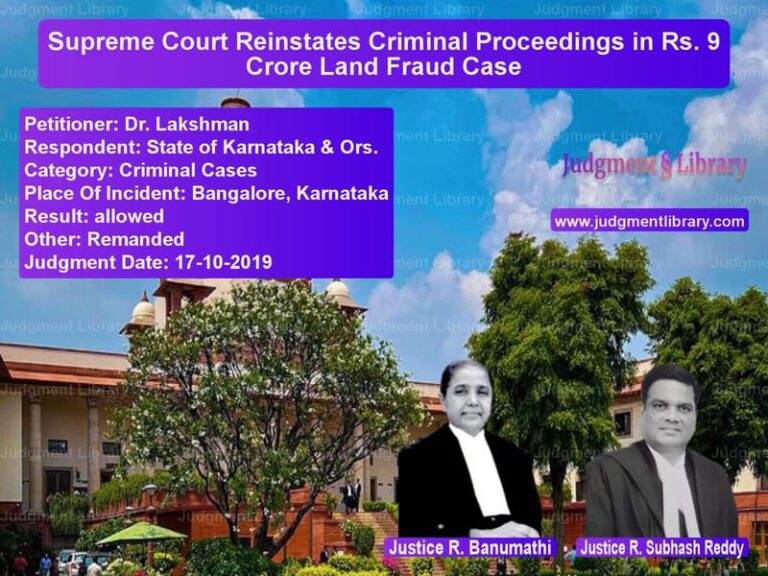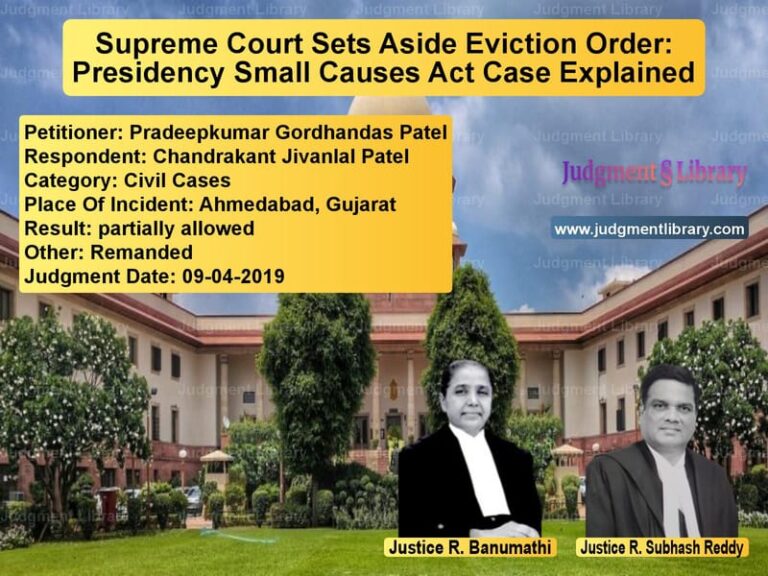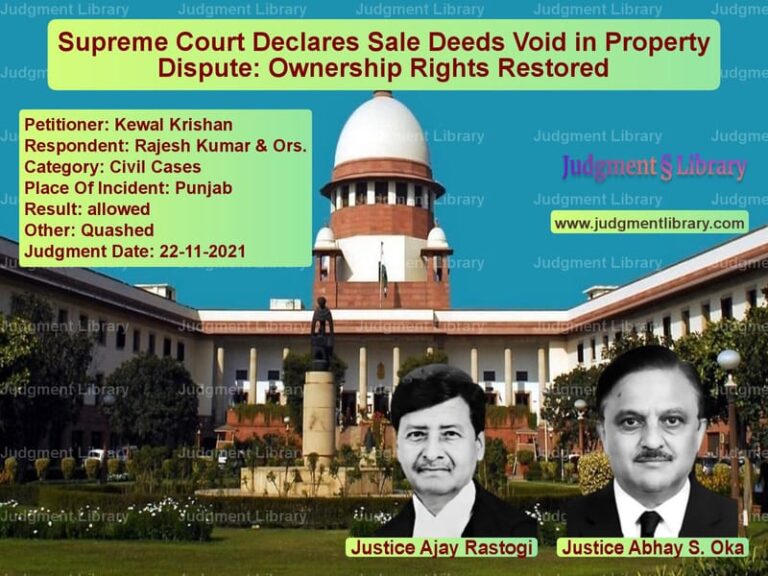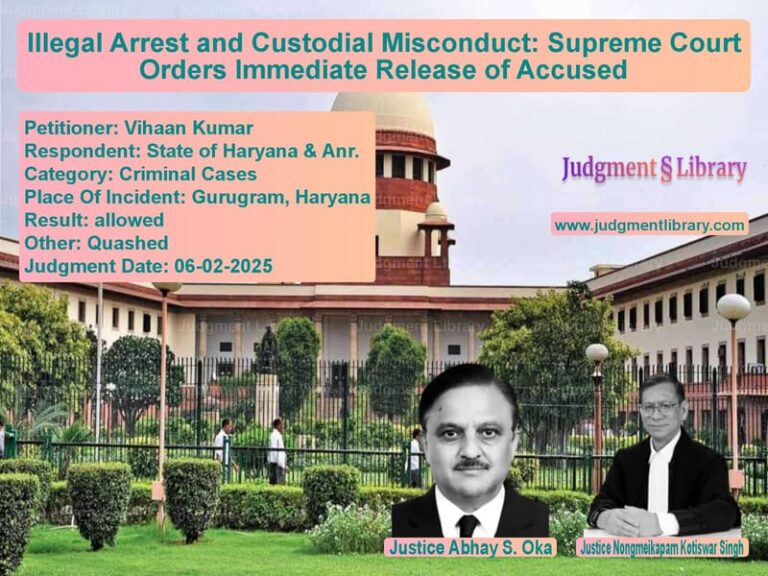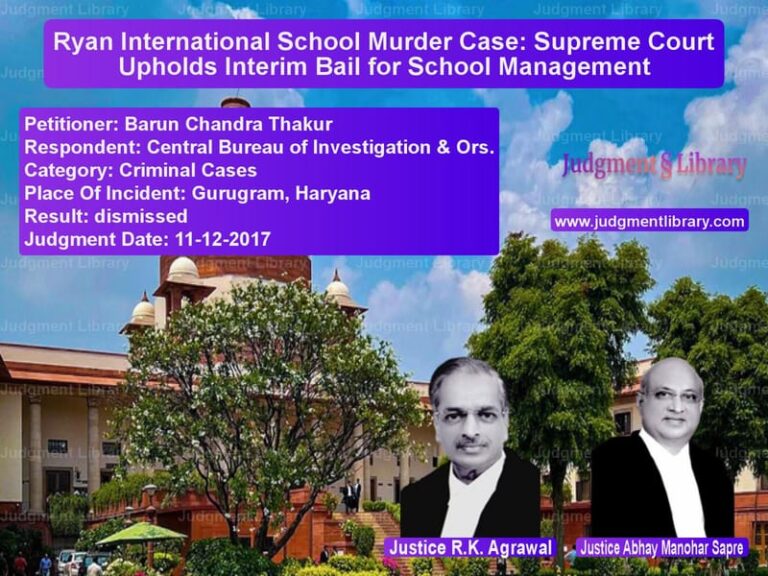Mediation and Settlement in Workplace Harassment: Supreme Court’s Judgment on Shubra P. Kandpal’s Case
The case of Shubra P. Kandpal vs. The State of Uttarakhand & Ors. involves a dispute between a university professor and several of her colleagues, with allegations under the Scheduled Castes and Scheduled Tribes (Prevention of Atrocities) Act, as well as charges of harassment and criminal intimidation under the Indian Penal Code. This appeal challenges the High Court’s decision, which had partly allowed the petition for quashing charges. The Supreme Court, after hearing both sides, approved the resolution reached through mediation, providing a conclusion to the ongoing criminal case.
Background of the Case
The petitioner, Shubra P. Kandpal, was a faculty member at a government college in Uttarakhand. She filed a complaint alleging harassment by her colleagues, specifically Respondent No. 2, who was the principal of the institution, and other faculty members. The harassment was claimed to have occurred on multiple occasions and was reported to higher authorities but no steps were taken to resolve the matter. Subsequently, an FIR was lodged against the respondents under sections 389, 504, and 506 of the IPC, along with allegations under sections 3(1)(r) and (s) of the SC/ST Act. These charges were related to caste-based remarks allegedly made by the respondents.
The situation escalated, and in retaliation, Shubra P. Kandpal filed another FIR under Section 354-A of the IPC against the respondents, accusing them of sexual harassment. The case was brought before the High Court, which partially quashed the charges under the SC/ST Act but allowed the proceedings for charges under the IPC to continue. The matter was then referred to the Supreme Court.
Read also: https://judgmentlibrary.com/cbi-vs-jagat-ram-bribery-conviction-and-high-courts-reversal/
Arguments of the Petitioner
The petitioner argued that:
- The caste-based remarks made by the respondents were not directly related to caste-based discrimination but were part of a pre-existing dispute regarding work-related issues.
- The charges under the SC/ST Act should be quashed since the allegations were not related to caste-based atrocities, but rather to professional and personal conflicts.
- The respondent’s actions, though objectionable, did not warrant criminal proceedings under the SC/ST Act and should be dealt with under the normal provisions of the IPC for harassment and intimidation.
Arguments of the Respondent
The respondent argued that:
- The accusations of caste-based harassment were well-founded and supported by the statements of witnesses.
- While the workplace harassment allegations were serious, they did not justify a complete quashing of the charges, as the respondents were entitled to face the legal proceedings under relevant laws.
- The High Court’s decision to allow the harassment charges under the IPC while quashing the SC/ST Act charges was justified based on the evidence presented.
Supreme Court’s Analysis
The Supreme Court noted that:
- The dispute between the parties was more personal and related to professional conflicts rather than caste-based harassment, which would not typically attract the SC/ST Act.
- The Court appreciated the efforts of the mediation process, which resulted in a settlement agreement between the parties, resolving the criminal proceedings amicably.
- Considering the sensitive nature of the accusations and the potential for future conflict in an academic setting, the Court favored a settlement that would allow the parties to move forward without further criminal litigation.
Final Judgment
The Supreme Court ruled in favor of the appellant by quashing the criminal proceedings under sections 3(1)(r) and (s) of the SC/ST Act. The Court held that:
- The charges under the SC/ST Act were quashed as they were based on a pre-existing personal and professional dispute, rather than on caste-based harassment.
- The Court noted the importance of resolving workplace conflicts through appropriate channels and appreciated the successful mediation, which led to an amicable resolution.
- The criminal cases under sections 504 and 506 of the IPC were allowed to proceed, allowing the respondents to face charges for harassment under the normal criminal laws.
The Supreme Court’s decision underscores the importance of addressing workplace disputes in a fair manner, balancing legal frameworks with opportunities for mediation and resolution.
Petitioner Name: Shubra P. Kandpal.Respondent Name: The State of Uttarakhand & Ors..Judgment By: Justice B.R. Gavai, Justice K.V. Viswanathan.Place Of Incident: Uttarakhand.Judgment Date: 02-12-2024.
Don’t miss out on the full details! Download the complete judgment in PDF format below and gain valuable insights instantly!
Download Judgment: shubra-p.-kandpal-vs-the-state-of-uttarak-supreme-court-of-india-judgment-dated-02-12-2024.pdf
Directly Download Judgment: Directly download this Judgment
See all petitions in Bail and Anticipatory Bail
See all petitions in Workplace Harassment
See all petitions in SC/ST Act Case
See all petitions in Judgment by B R Gavai
See all petitions in Judgment by K.V. Viswanathan
See all petitions in allowed
See all petitions in Modified
See all petitions in supreme court of India judgments December 2024
See all petitions in 2024 judgments
See all posts in Criminal Cases Category
See all allowed petitions in Criminal Cases Category
See all Dismissed petitions in Criminal Cases Category
See all partially allowed petitions in Criminal Cases Category


